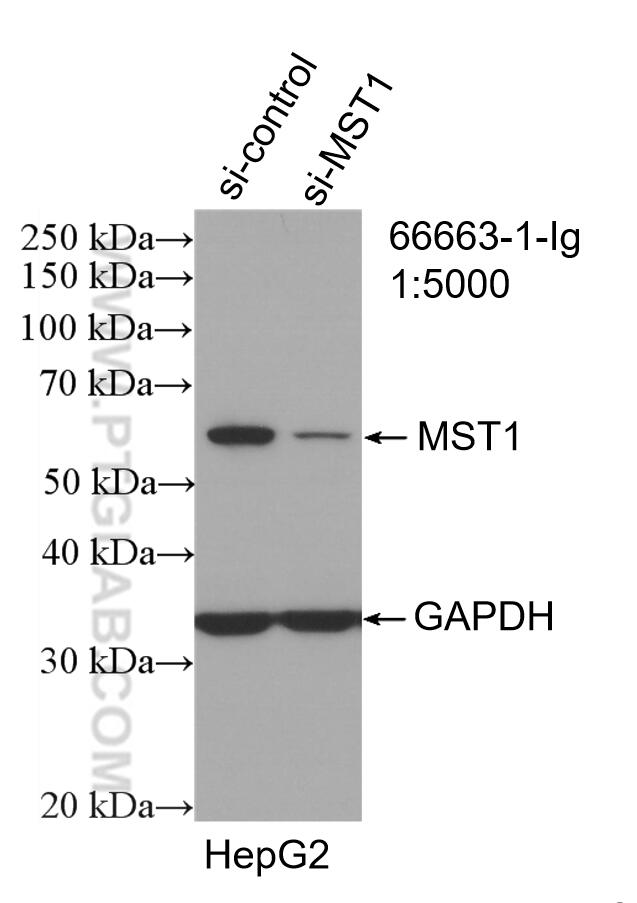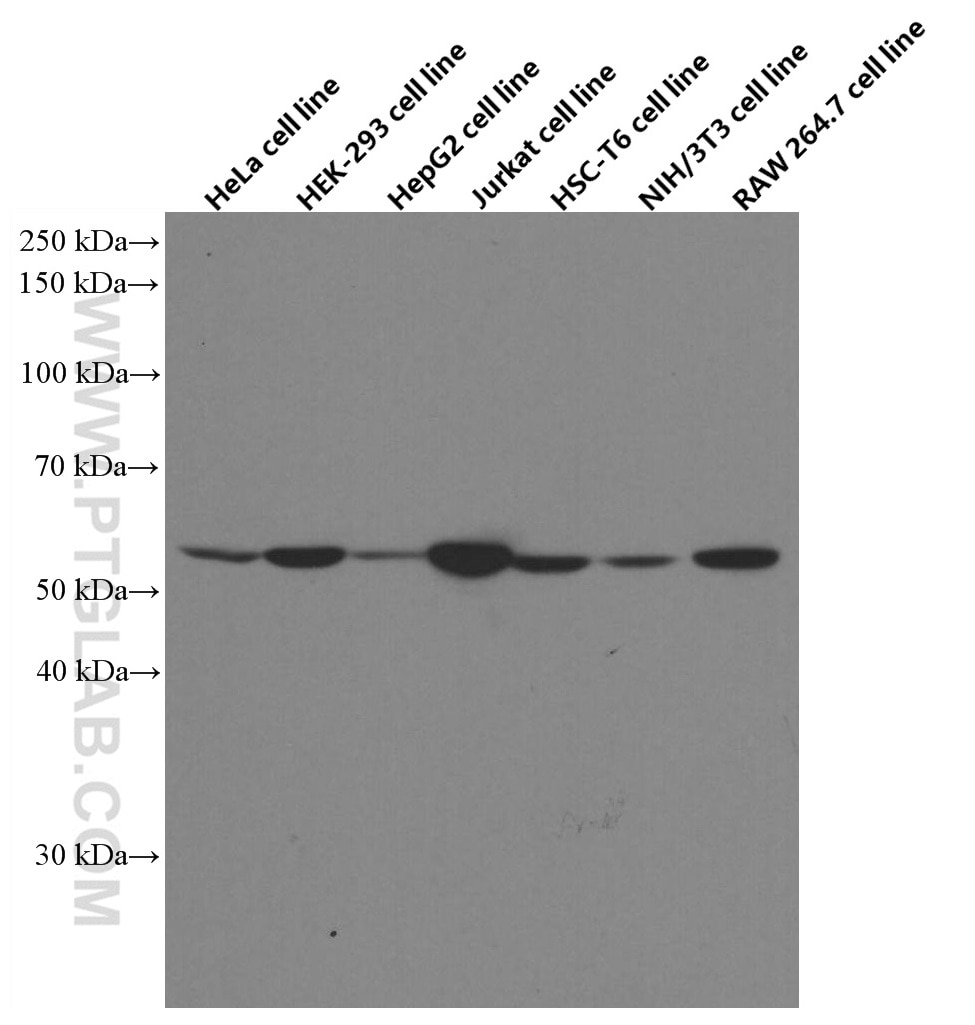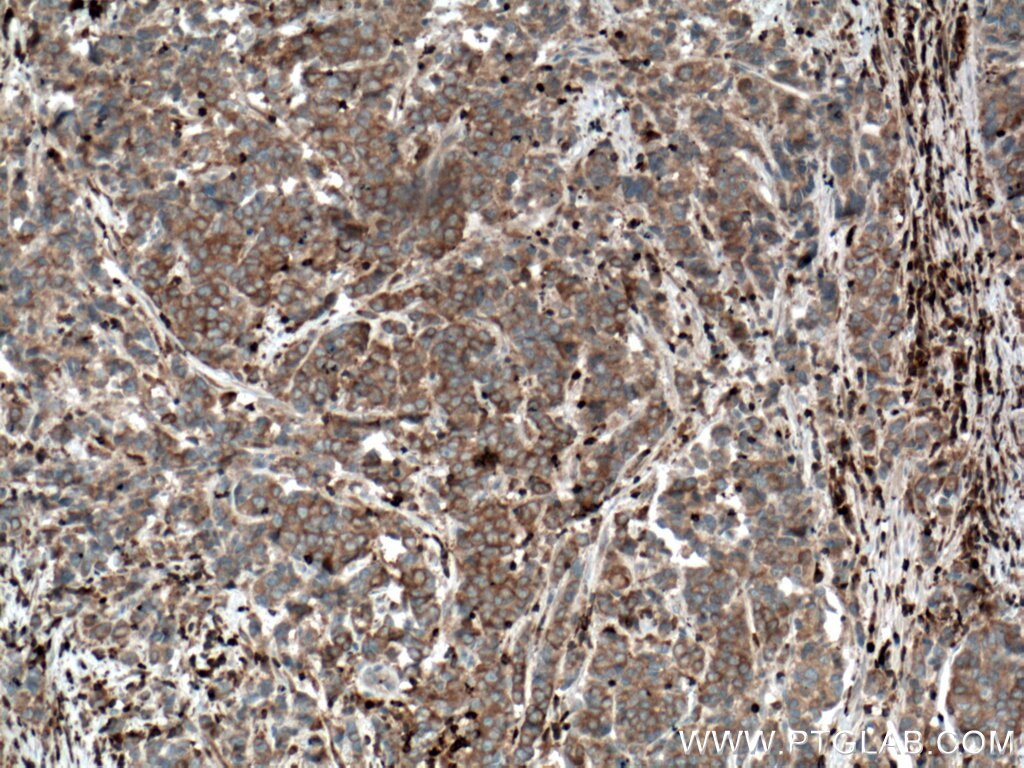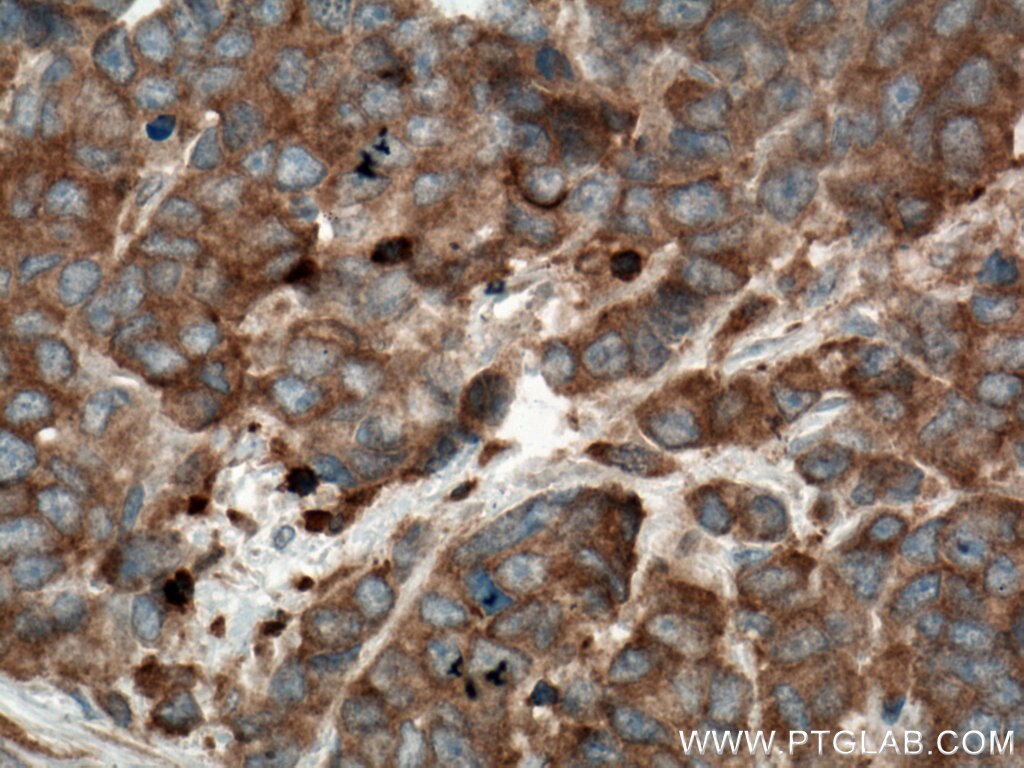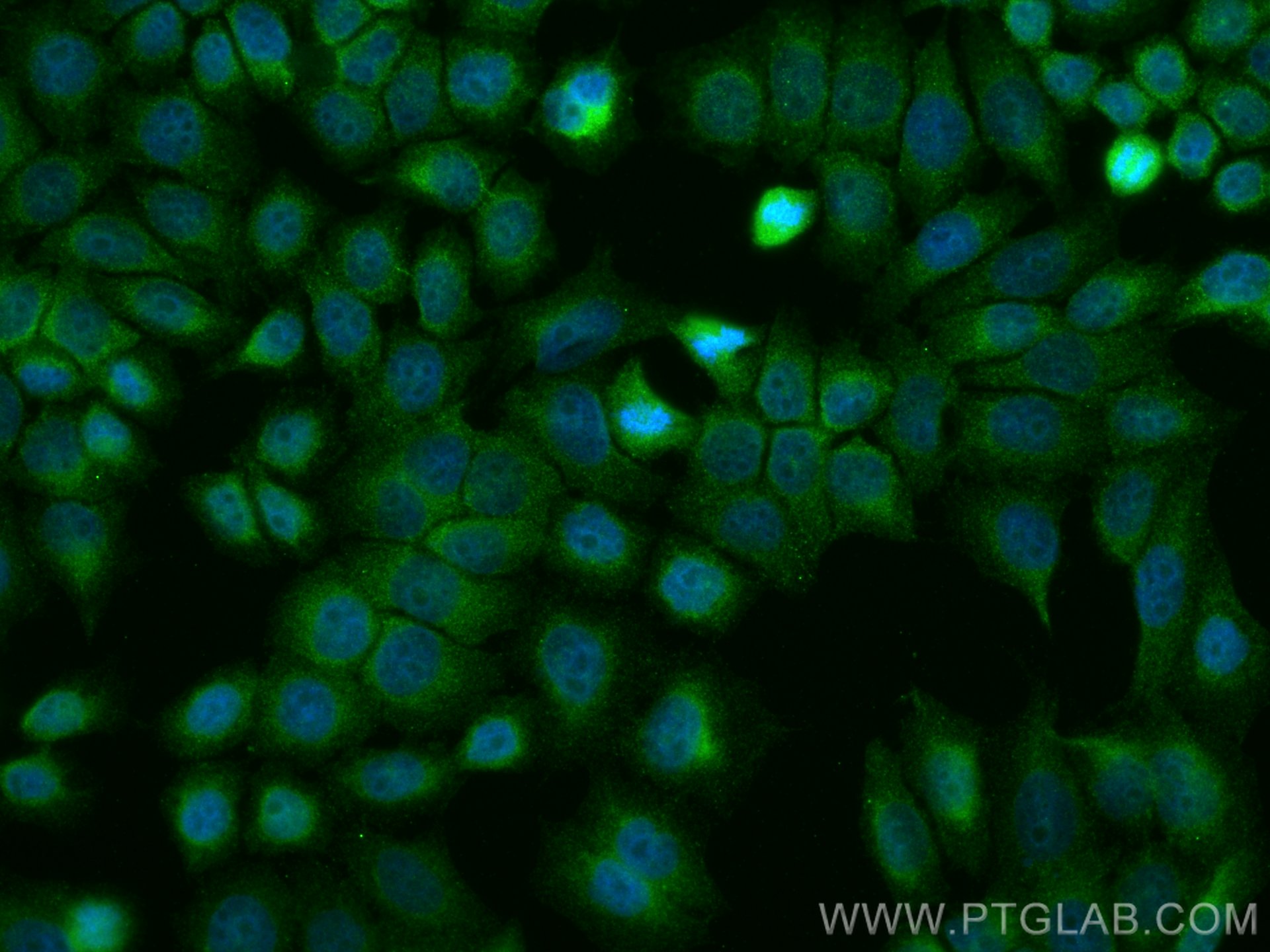Tested Applications
| Positive WB detected in | HeLa cells, HepG2 cells, HEK-293 cells, Jurkat cells, HSC-T6 cells, RAW 264.7 cells |
| Positive IHC detected in | human prostate cancer tissue Note: suggested antigen retrieval with TE buffer pH 9.0; (*) Alternatively, antigen retrieval may be performed with citrate buffer pH 6.0 |
| Positive IF/ICC detected in | PC-3 cells |
Recommended dilution
| Application | Dilution |
|---|---|
| Western Blot (WB) | WB : 1:2000-1:10000 |
| Immunohistochemistry (IHC) | IHC : 1:250-1:1000 |
| Immunofluorescence (IF)/ICC | IF/ICC : 1:200-1:800 |
| It is recommended that this reagent should be titrated in each testing system to obtain optimal results. | |
| Sample-dependent, Check data in validation data gallery. | |
Published Applications
| KD/KO | See 1 publications below |
| WB | See 3 publications below |
| IHC | See 1 publications below |
Product Information
66663-1-Ig targets MST1 in WB, IHC, IF/ICC, ELISA applications and shows reactivity with Human, Mouse , Rat samples.
| Tested Reactivity | Human, Mouse , Rat |
| Cited Reactivity | human, mouse |
| Host / Isotype | Mouse / IgG2a |
| Class | Monoclonal |
| Type | Antibody |
| Immunogen | MST1 fusion protein Ag17738 Predict reactive species |
| Full Name | serine/threonine kinase 4 |
| Calculated Molecular Weight | 487 aa, 56 kDa |
| Observed Molecular Weight | 52-56 kDa |
| GenBank Accession Number | BC093768 |
| Gene Symbol | MST1 |
| Gene ID (NCBI) | 6789 |
| RRID | AB_2882018 |
| Conjugate | Unconjugated |
| Form | Liquid |
| Purification Method | Protein A purification |
| UNIPROT ID | Q13043 |
| Storage Buffer | PBS with 0.02% sodium azide and 50% glycerol, pH 7.3. |
| Storage Conditions | Store at -20°C. Stable for one year after shipment. Aliquoting is unnecessary for -20oC storage. 20ul sizes contain 0.1% BSA. |
Background Information
Mammalian STE20-like serine-threonine kinase MST1, encoded by the STK4 gene, is a multifunctional protein. MST1 and its closest paralogs MST2 (encoded by the STK3 gene), MST3, and MST4 are members of the Class II Germinal Center Family of Protein Kinases . STK3/4 and LATS1/2 (large tumor suppressor 1 and 2) are core kinase components of the Hippo tumor suppressor pathway in mammalians . In the conventional Hippo pathway, the STK3/4 and LATS1/2 signaling cascade phosphorylates and inactivates the transcriptional coactivator YAP1 (yes associated protein 1) and its close paralog WWTR1]. YAP1 and WWTR1 do not have DNA binding domains and they exert their biological outputs, such as cell proliferation and survival, by interacting with the TEAD1-4 transcription factors. Lines of evidence have indicated that dysregulation or loss of STK4/Hippo signaling is linked to developmental disorders and carcinogenesis with poor prognosis. STK4 is a stress-induced kinase and it can be activated in response to cell-death inducers. Autophosphorylation of STK4 at Thr183 (Thr180 in STK3) in the activation loop is a key activation mechanism for STK4/3 because phosphorylation of Thr183/180 causes the cleavage of STK4 by caspases under apoptotic conditions. The caspase-cleavage results in a more active STK4 protein (STK4-N, an amino-terminally truncated STK4), which localizes into the nucleus and induces apoptosis through histone modifications and chromatin condensations.
Protocols
| Product Specific Protocols | |
|---|---|
| WB protocol for MST1 antibody 66663-1-Ig | Download protocol |
| IHC protocol for MST1 antibody 66663-1-Ig | Download protocol |
| IF protocol for MST1 antibody 66663-1-Ig | Download protocol |
| Standard Protocols | |
|---|---|
| Click here to view our Standard Protocols |
Publications
| Species | Application | Title |
|---|---|---|
Biofactors FERM domain-containing protein 6 exerts a tumor-inhibiting role in thyroid cancer by antagonizing oncogenic YAP1 | ||
J Biol Chem Angiomotins stimulate LATS kinase autophosphorylation and act as scaffolds that promote Hippo signaling. | ||
Biochem Pharmacol A humanized Anti-YKL-40 antibody inhibits tumor development
| ||
Br J Pharmacol Diminished nuclear-localized β-adrenoceptor signalling activates YAP to promote kidney fibrosis in diabetic nephropathy |
